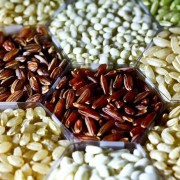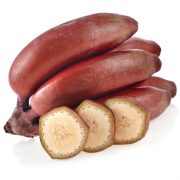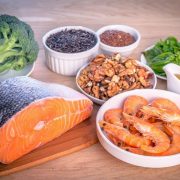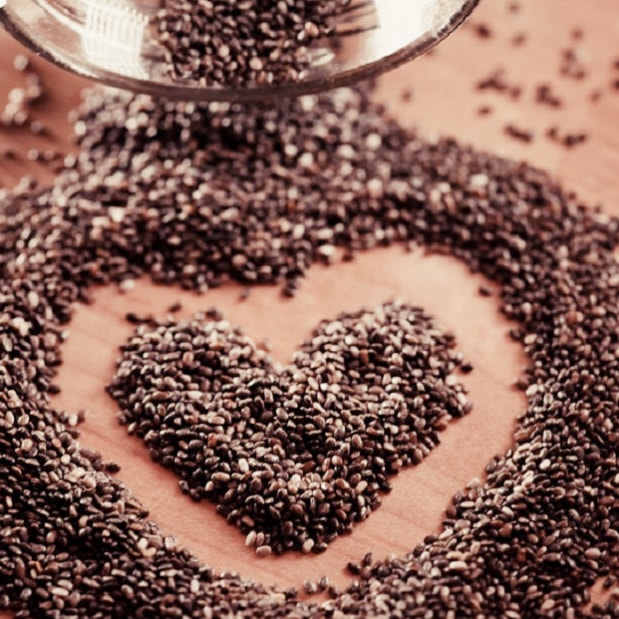 Even in small quantities, chia seeds are packed with important nutrients.
Even in small quantities, chia seeds are packed with important nutrients.
It is an excellent source of omega-3 fatty acids, rich in antioxidants and fibers, magnesium, zinc etc.
Chia seed is a small seed of the plant Chia (Salvia hispanica).
Came from Mexico and Guatemala, this seed was already a staple food of the ancient Aztecs and Mayans.
In fact, chia is ancient word of Maya Civilization meaning “strength”.
Color seeds can vary from white to brown or black. Due to the relatively mild taste, chia seeds can be added to almost anything.
It can be mixed with liquid and eaten as porridge, or in pudding, while it is also used in bakery products, or simply sprinkled on top of salads and yogurt.
Because of its ability to absorb liquid and gel forms, also can be used for making sauces or as a substitute for eggs in recipes.
Nutritional value of chia seeds
Consuming plant-based foods of every kind has long been associated with a decreased risk of many adverse health conditions, including obesity, diabetes, heart disease and all-cause mortality.
Having a diet rich in plant foods also showed the positive impact on the healthy complexion, increased energy and controlled body weight.
Fibers
Chia seed contains 486 calories per 100 grams, 6% water, 46% carbohydrate (of which 83% fiber), 34% fat and 19% protein.
The fibers are generally insoluble and associated with a reduced risk of diabetes.
Chia seed is good absorber of water as fibers absorb liquid up to 10-12 times of its own weight and seed turns it into a gel mass.
Omega 3 acids
This is why chia is mostly known for.
The seed is rich in healthy Omega 3 fatty acids.
65% of the fats in chia are composed of omega-3 fatty acid, Alpha-linolenic acid (ALA), while about 20% of omega 6 fatty acids.
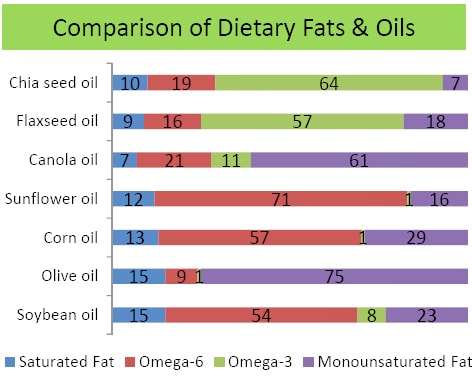
Chia seeds are actually the largest, plant based source of omega-3 fatty acids, even more than flax seed.
Proteins
Chia seeds contain 19% protein, which is similar like other seeds, but more than most grains.
Eating high protein food is associated with increased satiety after meals and reduced food intake.
Chia is rich in high-quality protein with all essential amino acids, and therefore is a good plant-based protein source.
However, it is not recommended as the only source of protein for children.
It is also gluten-free, so that gluten intolerant individuals can enjoy it!
Vitamins and minerals
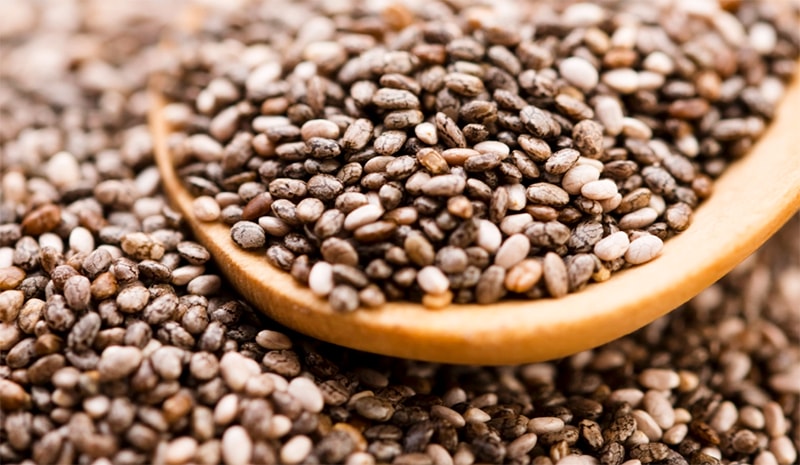
Chia seeds contain high amounts of many minerals but are poor sources of vitamins. In chia seeds, we can find the following minerals:
- Manganese: Chia seed is rich in manganese, which is essential for metabolism, growth, and development.
- Phosphorus: It is usually found in foods rich in protein, phosphorus contributes to bone health and maintenance of tissues.
- Copper: mineral that is often lacking in the diet, is important for heart health.
- Selenium: An important antioxidant mineral involved in many processes in the body.
- Iron: As a component of hemoglobin in red blood cells, iron is involved in the transport of oxygen throughout the body.
- Magnesium: It is often under-represented in the western diet, magnesium plays an important role in many processes in the body.
- Calcium: the most abundant mineral in the human body, essential for bones, muscles and nerves
Other useful substances
- Chlorogenic acid: antioxidant that can reduce blood pressure.
- Caffeic acid: These substances are abundant in many plant foods, may help fight inflammation in the body.
- Quercetin: A powerful antioxidant that may reduce the risk of heart disease, osteoporosis and some cancers.
- Kaempferol: Antioxidant that is associated with a reduced risk of cancer and other chronic diseases.
Health benefits of chia seeds
Reduce cholesterol
Since Chia seed has a high content in fiber, protein and omega-3, affects the general improvement of metabolic health. Tests have shown that reducing LDL cholesterol, increases HDL cholesterol and reduce inflammation.
Control blood sugar
A healthy blood sugar level is essential for optimal health. Studies have shown that chia seed reduce insulin resistance and improve blood sugar control, which are important risk factors of metabolic syndrome, type 2 diabetes, and heart disease.
Bread made with chia causes reduced blood sugar levels compared to traditional bread from wheat.
Lower blood pressure
High blood pressure is a major risk factor for chronic diseases, such as heart disease.
Chia seeds and chia flour have proved to decrease the blood pressure, if they are consumed in a longer period of time.
Healthy functioning of the digestive tract
Most people do not enter enough amount of fiber.
High fiber intake is associated with better intestinal health and a lower risk of many diseases.
An about two tablespoons chia seed provides 11 grams of fiber, which is 29% of the recommended intake for men and 44% of the recommended intake for women.
Due to the extraordinary ability to absorb water, which increases seed weight of food in the digestive tract, which leads to increased satiety and lower food intake. Chia seeds are particularly rich in insoluble fiber, which are associated with a reduced risk of diabetes.
Increase performance
Legend says that the Aztecs and Mayans used with seed as e “tricity fuel” during strenuous physical labor.
It is good for athletes and people performing physical activities. Increasing the intake of chia can provide nutrients, thus reducing the intake of simple sugars.
Chia seeds side effects
It’s not registered any side effect of consuming chia seeds. However, to avoid possible digestive side effects, it is advisable to drink plenty of water when consuming, especially if the seed is not pre-soaked.
If you are taking blood thinners, then consult a doctor before including large quantities of chia seeds in your diet.
Omega-3 fatty acids may influence the activity of drugs.
How to increase the intake of chia seeds in your diet?
Chia seeds are relatively easy to find in any larger supermarket. Chia seeds can be eaten raw or cooked, added in yogurt, mixed with other cereals or in smoothies.
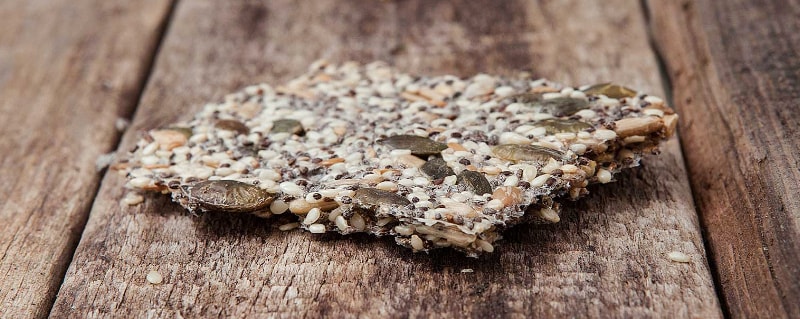
You can eat it raw or cooked. Add it in pastries such as bread or cakes. If you run out of eggs, you can mix 1 tablespoon of seeds with 3 tablespoons of water, let stand for a few minutes and you have a replacement for eggs.


